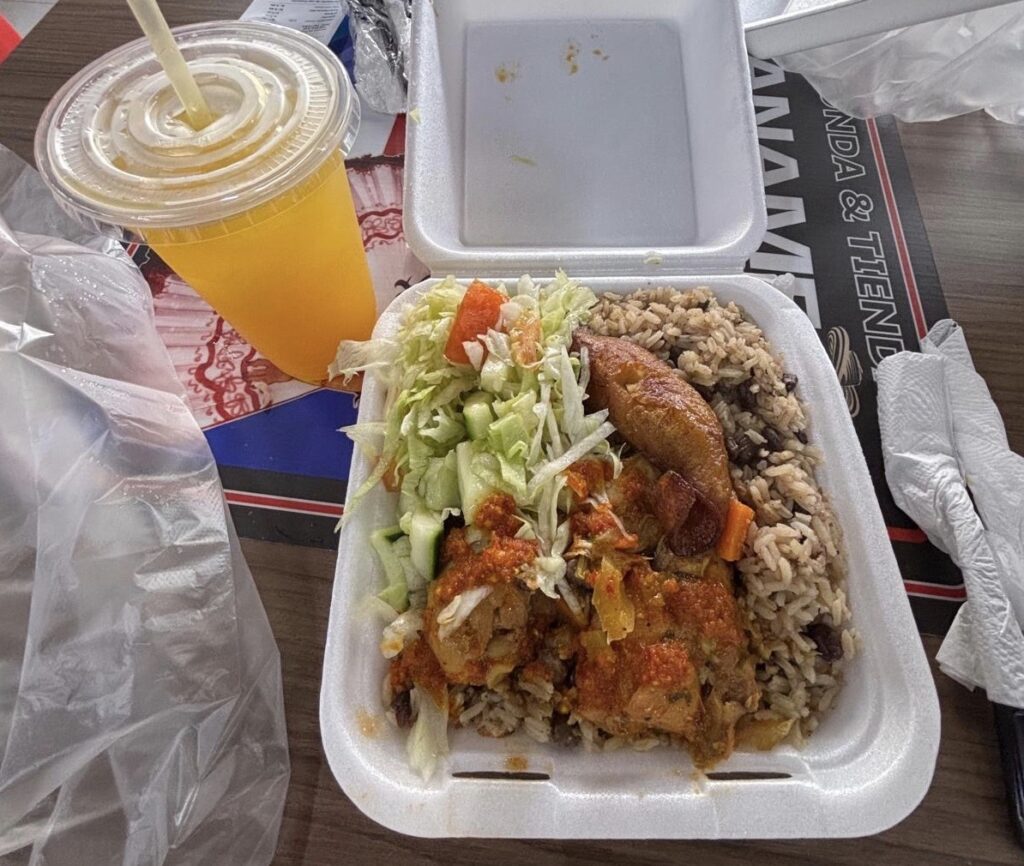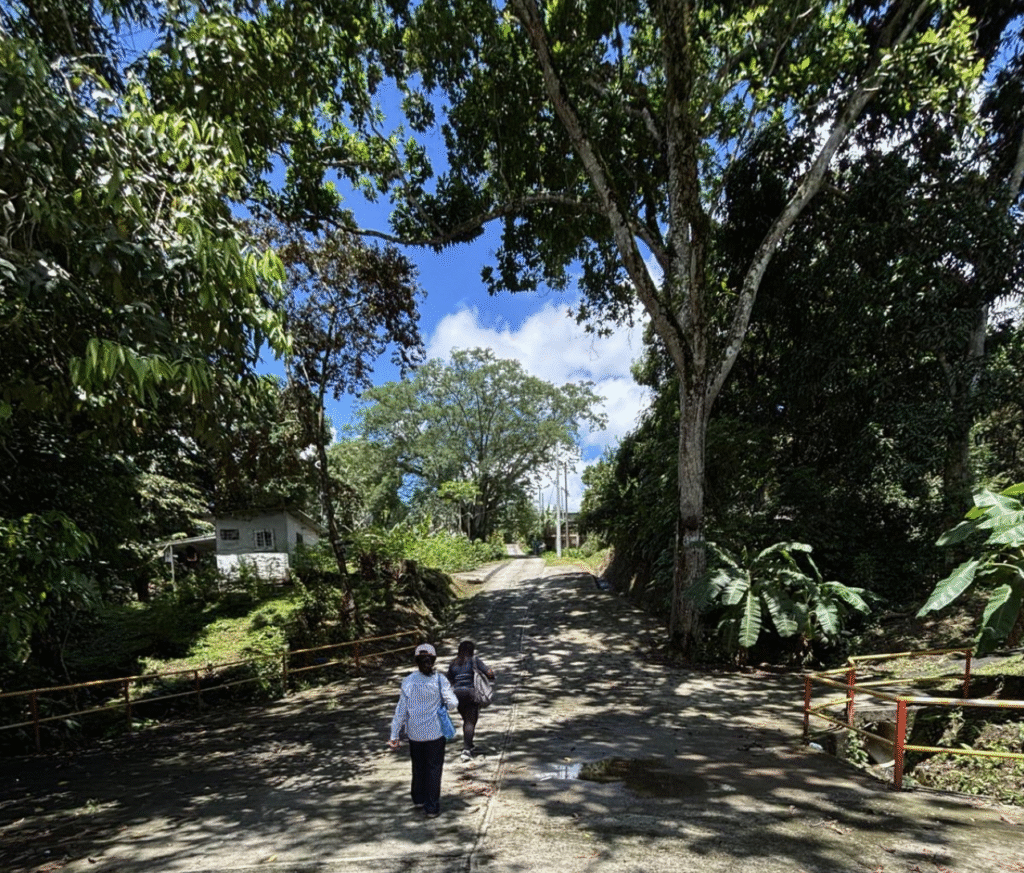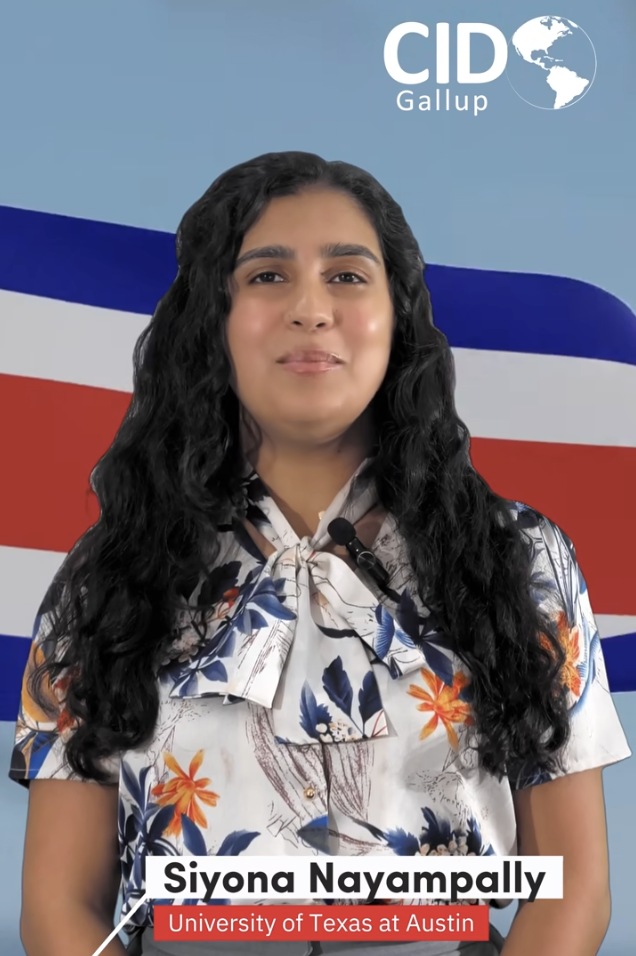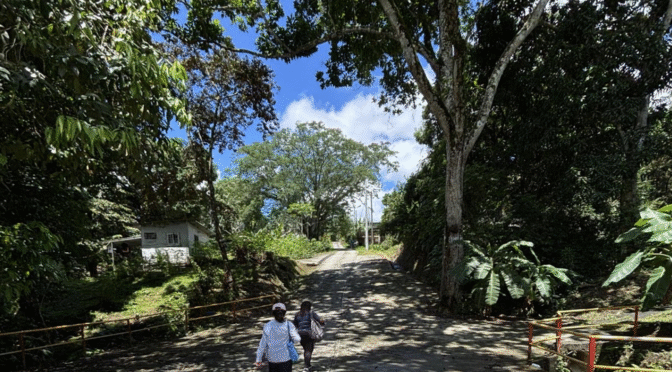By Siyona Nayampally, Undergraduate student in the UT Economics Department and Plan II Program
The weeks leading up to my flight to Panama’s Tocumen Airport, I was filled with excitement and nerves. My travels in Latin America had been limited to short trips in Mexico and Costa Rica, and I wasn’t sure what to expect for life in Panama. What I have encountered during my time here has been so much more than I could have imagined. The culture was so welcoming and kind and within a couple of days, I felt right at home. Riding alongside locals to work on the metro every day, I got to see a different side to this new city than I was used to from my travels. We immersed ourselves in the working Panamanian experience, eating lunch at the fonda almost daily, and spending time with our coworkers on the weekends.

In our first week at CID Gallup, we hit the ground running when we went out into the field to assist the survey team with fieldwork for a survey about the youth opinion surrounding the United States or China taking control of the Canal. Having only an American perspective of the issue, it was fascinating to observe the answers to the survey and get a better sense of public opinion on Panama’s relations with the United States and China.
For the rest of the week, we got the chance to work on the behind the scenes of the migration study we were conducting through the University of Texas at Austin as we prepared for the study’s first focus group. We were heavily involved with the recruitment process, interviewing people on the street to see if they fit the criteria for our focus group. This process led to many intriguing conversations about how migrants from different countries made their way to Panama and what their reasons for leaving their home country were. The purpose of the focus group was to understand how Panama’s community treated migrants, what made them feel accepted, and what isolated them from people who had roots in the country for generations. The participants were from a variety of countries in Central and South America which produced a fascinating conversation about shared and diverging experiences in their migration journey.
The bulk of our work has been for the United Nations Development Program (UNDP) in their survey of the Panama Canal Basin region. The purpose of the survey was to get a better sense of public opinion surrounding topics like gender equity, the effects of climate change, and hunger to gauge progress on their Sustainable Development Goals. We were involved with all of the preliminary steps of CID Gallup’s process, helping to craft and edit their work plan, technical offer, and schedule breakdown to present to UNDP. Once those initial documents were approved, we tested the survey in CID Gallup’s surveying platform to make corrections and give our own recommendations on how to adapt the questions to yield better results. Once final edits were completed, we were trained on how to give the survey alongside the surveyors recruited for this project and then actually went out into the field to collect the data.

On our first day conducting the UNDP survey, the journey to reach the area we were assigned to was long and required several different forms of transport. While the day was hot and the area very hilly to walk around, Olivia (another Embedded Scholar) and I really enjoyed observing the surveyors and helping to give the surveys. The community was very kind and open to sharing their thoughts and opinions on their lifestyle in the Basin region. Our time spent in the field doing survey work was such a unique opportunity and exposed us to different regions of Panama that we never would have seen otherwise. The chance to speak to these people through the surveys and hear about life experiences that I have not witnessed firsthand both gave me a new perspective on my own life and expanded my cultural understanding of this country and region in general.
In addition to assisting with the UNDP project, we were tasked with creating our own proposal for a potential survey project for Gallup to carry out. We applied our previous experience in crafting the proposals and offers for the UNDP project to develop well-rounded proposals of our own and a list of targeted organizations that could use the findings from our research project to better serve the people affected by the issues we were exploring. I chose to study climate migration, specifically the widespread internal climate migration present in Latin America. The preparation for my proposal gave me the opportunity to research the background of this issue, through which I realized that Latin America was the third region most affected by internal climate migration in the world. The rates were significantly higher in indigenous regions in Panama and the Dominican Republic that relied heavily on the sea for their livelihood and lifestyle. As I am interested in environmental issues and have been involved in advocacy for sustainability initiatives and energy policy in the past in the United States, it was fascinating to be able to closely study the impacts of climate change on another region as well as see firsthand how it was affecting these communities.
One day, we received a visit from Carlos Denton, the CEO and founder of CID Gallup, who gave us an assignment to create a brief analysis report using one of the triannual public opinion reports that CID Gallup prepares for six Central American countries. The reports included a wide variety of topics, from the public’s expectations for their country’s qualification for the World Cup to their opinions on the current economy. The assignment gave us the opportunity to draw connections between various themes and stretch our analysis muscles. Once our reports were prepared, Mr. Denton himself read over them and gave feedback before the company sent them to media publications. We each had to record a summary of our analysis for CID Gallup to post on their social media to expand their reach and get their work and research findings in front of an English-speaking audience. My research presentation focused on public opinion research on economic issues in Costa Rica.

My time with CID Gallup reinforced the importance of public opinion surveying and the essential role it plays in informing public policy and private sector initiatives. Having an unbiased surveying agency is highly necessary for the possibility of democracy and for nongovernmental organizations that create a truly positive benefit for the communities they hope to serve. Public opinion data can provide a useful background for why programs aren’t working in implementation, to get progress reports on different initiatives, and to gauge the issues plaguing different areas of the public.
I am also so grateful to the Embedded Scholars program for assembling such a fun team to work with. The six of us at CID Gallup from Austin were all studying differing disciplines in our undergrad/graduate work and have very different personal backgrounds, so it was stimulating to hear everyone’s different perspectives about, and takeaways from, the projects we were working on. We also made the most of our time off of work, taking stock of all the tourist destinations like the Panama Canal and Museum, and Casco Viejo and exploring the country’s beaches in Portobelo, Punta Chamé, and Taboga Island. Our CID Gallup team was also incredibly excited to show us around and give us the full Panama experience, organizing dinners and trips around the city to see the different sights. Both teams made my time here so memorable! I’m incredibly thankful for all that I’ve learned, the incredible people I got to meet, and the beautiful places I got to experience in my time here!
